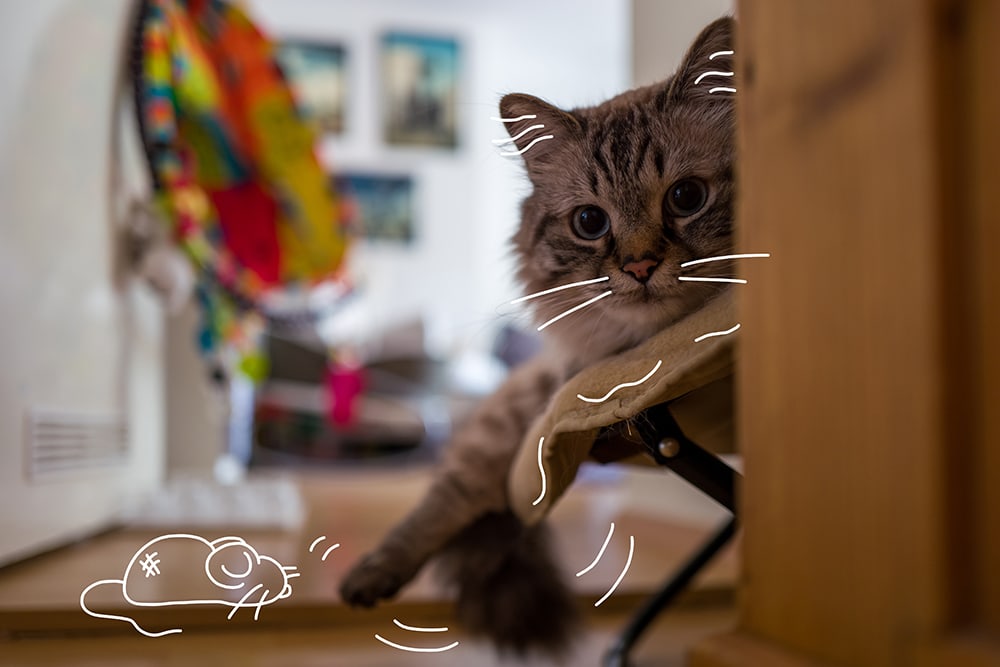Feline Focus: The Birman Cat – ‘The Sacred Cat of Burma’
The bright blue eyes and silky coat of the Birman have made them a favourite of many cat fanciers. They are known for their impressive size; with most breed members weighing in at a whopping 5.5 kilos or more. Despite this, they are nimble and agile and they love to climb and run.
Also known as ‘The Sacred Cat of Burma’, this furry feline is said to have been a sacred companion of the Kittah priests. It is though that the first Birman cats were shipped from Burma to France in the 1920’s. Though the Birman was first recognised in France in 1925, it was not until 1966 that they were eventually recognised in the UK.

Birman cats are naturally inquisitive and they enjoy exploring their surroundings. Some are reserved; keeping to themselves and enjoying taking time out away from other pets and animals. Anecdotally, these cats can become jealous and some are demanding of their owner’s attention and affection.
Health Conditions in Birman Cats
Health wise, Birman cats can suffer from a few health issues. The average Birman lives for about 12 to 14 years, though some individuals can live several years longer than this.
Kidney Disease: Both Polycystic Kidney Disease (PKD) and Chronic Renal Failure are present within the breed. Signs can include excessive thirst and urination, weight loss, a reduced interest in food and chronic nausea. Kidney disease is diagnosed with a combination of a blood test, a urine test and imaging of the kidneys and urinary tract. Those with PKD will have visible pockets of fluid on their kidneys. There is no treatment, but cats can be managed with prescription renal food, fluids, appetite stimulants and anti-nausea medicine to keep them comfortable.
Cystitis: Bladder inflammation is common in all cats and can have a range of underlying causes including stress, bacterial infections and bladder stones. Signs can include frequent straining in the litter tray, blood in the urine and excessive licking of the genital tract. Treating cystitis often includes a combination of medication, bladder supplements and environmental stress reduction.
Gingivitis: Gum inflammation can cause chronic pain, drooling, bad breath and difficulty eating. A vet can diagnose the condition by visually examining a cat’s mouth. Typically, treatment consists of a dental cleaning as well as feeding a prescription diet. There are products available which can be added to a cat’s food or water to minimise calculus formation. When possible, we should try and brush these kitty’s teeth on a daily basis. The typical cost of a dental cleaning under anaesthetic ranges from £300 to £1,000, depending on the severity of the condition.
Hypotrichosis & Short Lifespan: This genetic disorder of Birman cats is more prevalent in certain countries. Kittens are born bald and their skin is visibly greasy and wrinkled. As cats mature, they become increasingly unwell and most have passed away by 8 months. To prevent this disease, we can screen parents to ensure they are not genetic carriers.
Is the Birman the right Cat for you?
The Birman cat is a beautiful breed with a unique personality. Due to their easy-going and laidback nature, they are often touted as ‘the ideal’ family pet who tolerates both children and other pets. Not all are fawningly affectionate and many like to keep to themselves.
Looking for Cat Insurance?
Cats are full of surprises.
Sadly, life can surprise us with an unexpected financial burden of a veterinary bill if our purrfect pals develop an unexpected illness or have an accident.
Cover your Birman cat throughout all of their adventures with our cat insurance.
Birman kittens can benefit from four weeks free WallkawayCover kitten insurance. Find your nearest participating veterinary practice today. Kitten must be between eight weeks to one year of age and is subject to a CVS vet health check. WalkawayCover covers illness and accidents instantly.
For adult Birman cats, you can get a lifetime insurance quote online in a whisker, or call our friendly UK call centre team on 0808 164 8000.
You might also be interested in…
Get a quote in minutes…

Existing customers
Call now on 0808 164 7999
to discuss your policy with us.
Monday - Friday: 08:00 - 20:00 Saturday: 09:00 - 14:00





 Back
Back
